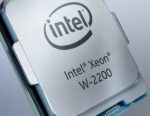In this special guest feature, Robert Roe from Scientific Computing World interviews Mark Parsons on the strategy for HPC in the UK. “We are not part of EuroHPC, so we are not going to have access to the exascale systems that appear in Europe in 2023, they will also have some very large systems in 2021, around 150 to 200 Pflop systems, and we will not have access to that which will have a detrimental effect on our scientific and industrial communities ability to use the largest scale of supercomputing.”
Articles and news on parallel programming and code modernization
Parallel Computing in Python: Current State and Recent Advances
Pierre Glaser from INRIA gave this talk at EuroPython 2019. “Modern hardware is multi-core. It is crucial for Python to provide high-performance parallelism. This talk will expose to both data-scientists and library developers the current state of affairs and the recent advances for parallel computing with Python. The goal is to help practitioners and developers to make better decisions on this matter.”
New Intel Xeon W and X-Series Processors Accelerate Workstation AI
Today Intel unveiled its latest lineup of Intel Xeon W and X-series processors, which puts new classes of computing performance and AI acceleration into the hands of professional creators and PC enthusiasts. “The professional and enthusiast communities require product engineering that caters to their specific mission-critical needs and keeps them on the cutting edge of technology advancements. This means the best hardware and software optimizations, but also looking at how we can infuse things like AI acceleration,”
Exploring the Performance Optimization and Productivity Project
The “quest” for improved performance is never over, if you want to remain competitive in your respective market. Your end users will undoubtedly call for more speed in the future, and the models your clients are building are likely bigger and more complex than ever. Enter the Performance Optimisation and Productivity (PoP) project.
Parallelism in Python: Directing Vectorization with NumExpr
According to a new edition of Parallel Universe Magazine, from Intel, Python has several pathways to vectorization. These range from just-intime (JIT) compilation with Numba 1 to C-like code with Cython. A chapter from a recent edition of Parallel Universe Magazine, explores parallelism in Python.
Checkpointing the Un-checkpointable: MANA and the Split-Process Approach
Gene Cooperman from Northeastern University gave this talk at the MVAPICH User Group. “This talk presents an efficient, new software architecture: split processes. The “MANA for MPI” software demonstrates this split-process architecture. The MPI application code resides in “upper-half memory”, and the MPI/network libraries reside in “lower-half memory”.
7 Ways HPC Software Developers Can Benefit from Intel Software Investments
Intel has long focused on supporting HPC software. But, as the years have gone by, much has changed — and the company’s offerings have grown and evolved. A chapter from a recent edition of Parallel Universe Magazine, from this past July outlines this evolution and offers seven ways HPC software developers can benefit from Intel software investments.
Appentra Releases Parallelware Trainer 1.3
Appentra has released Parallelware Trainer 1.3, an interactive, real-time code editor with features that facilitate the learning, usage, and implementation of parallel programming by understanding how and why sections of code can be parallelized. “We’re happy to announce the release of Parallelware Trainer 1.3 which now supports the detection of defects and recommendations for concurrency and parallelism. We expect this new feature to further improve the learning process by providing feedback about code issues right in the integrated editor.”
Chapel Comes of Age: a Language for Productivity, Parallelism, and Performance
Brad Chamberlain from Cray gave this talk at the HPCKP’19 conference. “Though Chapel has been under development for some time now, its performance and feature set have only recently reached the point where it can seriously be considered by users with HPC-scale scientific, data analytic, and artificial intelligence workloads. In this talk, I will introduce Chapel for those who are new to the language, and cover recent advances, milestones, and performance results for those who are already familiar with it.”
Overview of the MVAPICH Project and Future Roadmap
DK Panda gave this talk at the MVAPICH User Group. “This talk will provide an overview of the MVAPICH project (past, present, and future). Future roadmap and features for upcoming releases of the MVAPICH2 software family (including MVAPICH2-X and MVAPICH2-GDR) for HPC and Deep Learning will be presented. Features and releases for Microsoft Azure and Amazon AWS will also be presented. Current status and future plans for OSU INAM, OMB, and Best Practices Page will also be presented.”













